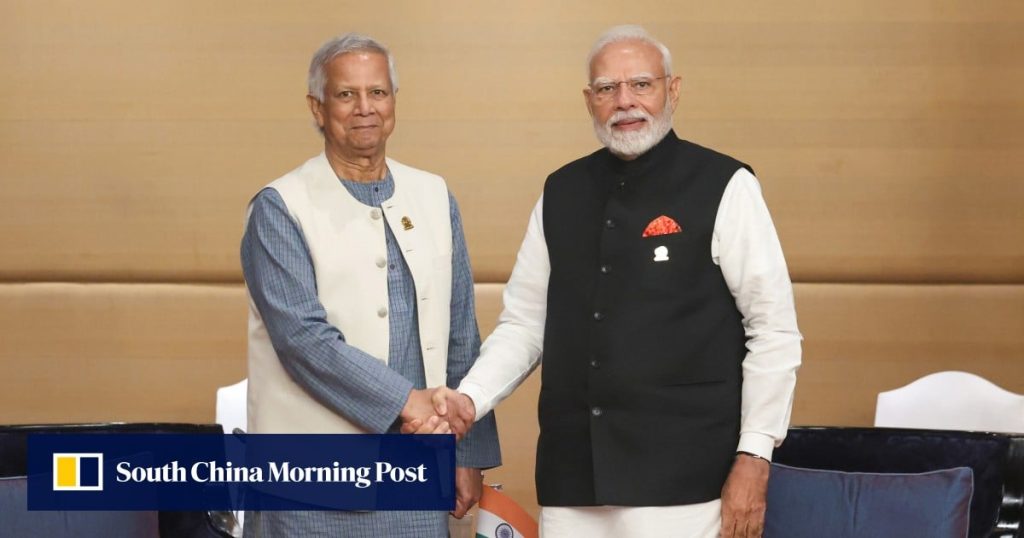The first official meeting between Indian Prime Minister Narendra Modi and Bangladesh’s interim leader Muhammad Yunus has offered a tentative step towards mending strained ties between their countries, though analysts warn that deep-seated mistrust and regional rivalries still cast a long shadow.
Held on the sidelines of the BIMSTEC summit in Thailand, their meeting on Friday marked the first formal contact between India and Bangladesh’s transitional administration since the abrupt collapse of Sheikh Hasina’s government last August, following weeks of student-led demonstrations and rising unrest.
Ties between the South Asian neighbours have steadily deteriorated since Hasina, long seen as a close ally of New Delhi, fled Bangladesh and took refuge in India. Her sudden departure not only removed a reliable partner but also left India scrambling to recalibrate its foreign policy towards a new leadership seen as more open to other powers.
The meeting between Yunus and Modi was described by Dhaka as “very constructive and fruitful”, while Delhi said both leaders had agreed that all bilateral issues would be addressed “through constructive discussions”.
Yet behind the diplomatic niceties, the two leaders are reported to have had more pointed exchanges. According to accounts in local media, Yunus urged Modi to restrain Hasina – now in refuge in India – from making “incendiary remarks”, while Modi in turn asked Bangladesh’s interim leader to avoid rhetoric that could “poison the atmosphere”.

While the meeting offered a rare moment of dialogue, analysts said it was less a breakthrough than a tactical pause – a chance for both sides to take stock after months of turbulence and shifting regional alignments.


